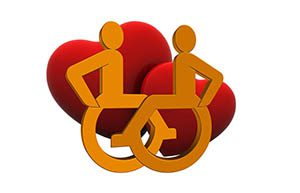Many children needing adoption or permanent fostering have specific needs
 A disability can be anything from autism to Down’s syndrome, cerebral palsy to a visual impairment, and each child will be affected and respond differently. The local authority looking after the child will fully assess the child’s current and ongoing needs and carefully select a suitable family who can meet those needs with appropriate support.
A disability can be anything from autism to Down’s syndrome, cerebral palsy to a visual impairment, and each child will be affected and respond differently. The local authority looking after the child will fully assess the child’s current and ongoing needs and carefully select a suitable family who can meet those needs with appropriate support.
BAAF runs the Opening Doors disability project to develop new and more effective ways for agencies to find permanent families for disabled children.
Developmental delay
Children who fall behind the progress made by most other children of their age are said to be delayed in their physical, emotional, intellectual or educational development. Where this delay is due to past experiences of disruptions or lack of care, it may be temporary. It can also last longer. For some children, their delay may be linked to learning or physical impairments.
With some children there is a level of uncertainty over their future development. This uncertainty may be based on the knowledge that their birth mother used drugs or alcohol during pregnancy, or that one birth parent has a condition such as, for instance, schizophrenia, which the child may inherit or develop at a later stage.
Learning disabilities
Children who have a significant impairment in their ability to learn are described as having learning disabilities. This covers a wide range of situations, and each child is different and responds differently. Learning disabilities are often described as ‘mild’, ‘moderate’ or ‘severe’, but these are not precise terms. With support, children with learning disabilities should be able to reach their full potential.
Special educational needs
Many of the children featured on Be My Parent will have special educational needs and may need a statement of educational needs (SEN) outlining their educational needs and the support they should receive at school. Some children may have missed out on some of their education, or find it difficult to learn and concentrate. If the child’s needs cannot be met by the resources of their school, it may be in their best interests to attend a different type of school, perhaps one that provides a more specialist education.
Emotional and behavioural needs
It is common for many children needing adoption or fostering to have previously experienced lack of care, lack of supervision, including neglect, or physical, emotional or sexual abuse, as well as separation and loss from their birth family. The majority of the children waiting for new families, including babies and infants, will have specific emotional needs due to their early life experiences.
Many children, particularly those who have had more than one carer, will have emotional or behavioural issues, such as attachment difficulties. Attachment is the process of emotional bonding between babies and their main carers, which is usually the mother, in the first few years of life. Research indicates that missing out on this connection can affect a child’s social behaviour and emotional development.
For more information about attachment issues, see some of our BAAF publications and Be My Parent features that look specifically at attachment, such as Attachment issues in adoption and foster care, Ways to deal with attachment issues: Helping your child build trust and Living with children with attachment issues.
Many children can find it difficult to ‘recover’ from their early difficult experiences, even with lots of love and attention from their adoptive family. Some children benefit from therapy or other types of support. Some children’s needs are best met when they are the youngest or only child in their adoptive family.


